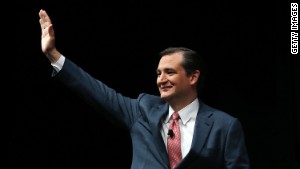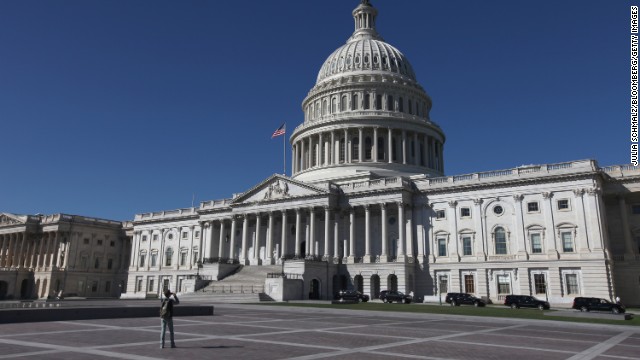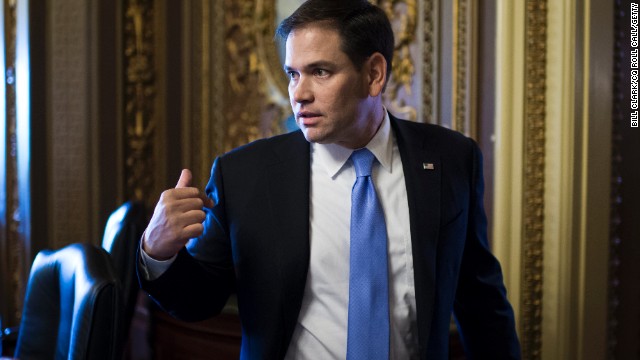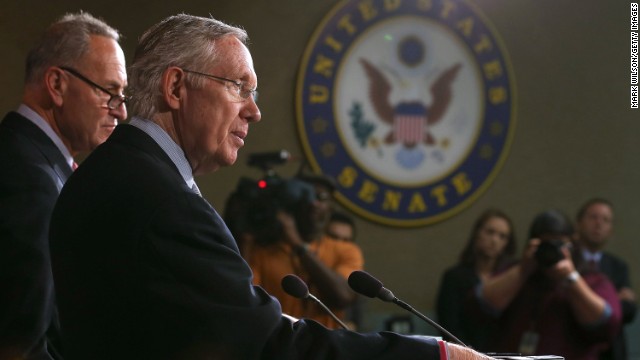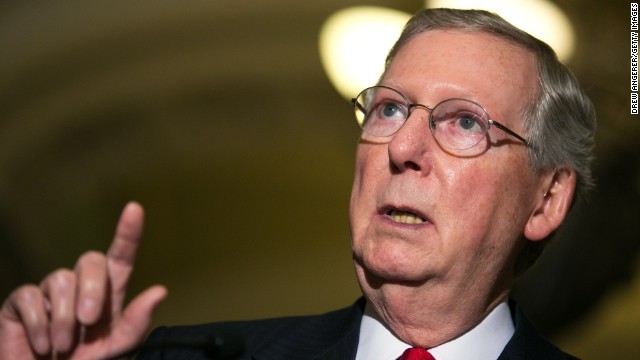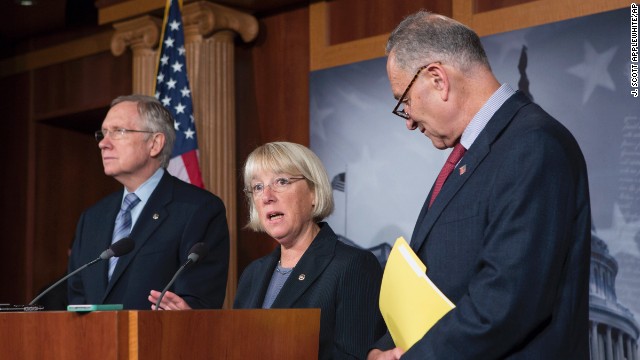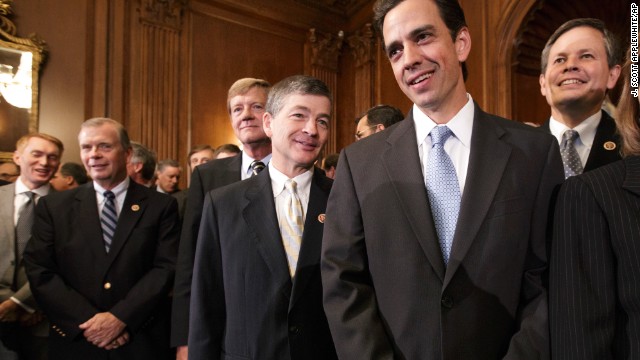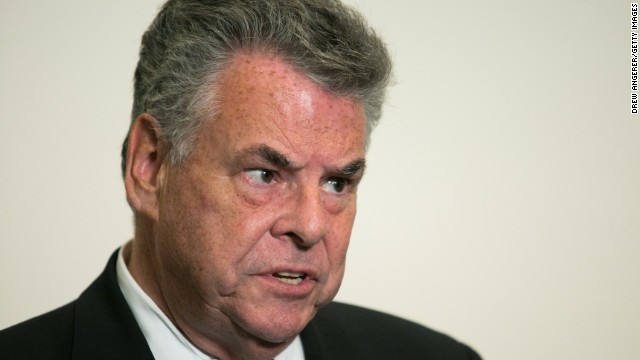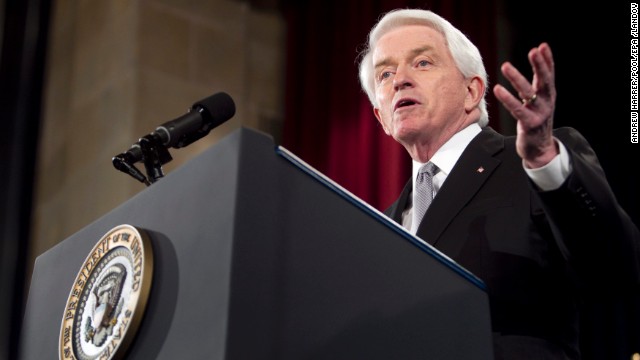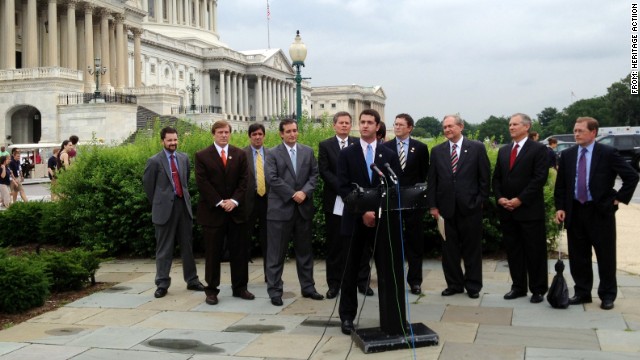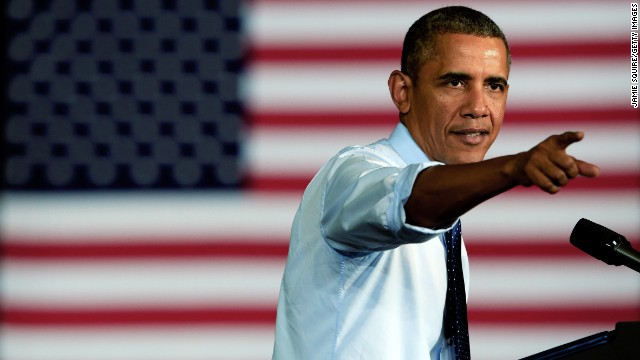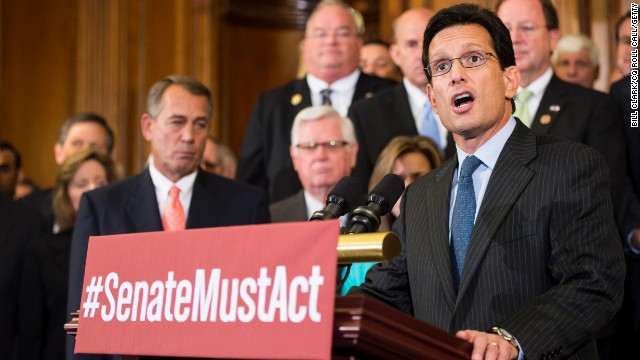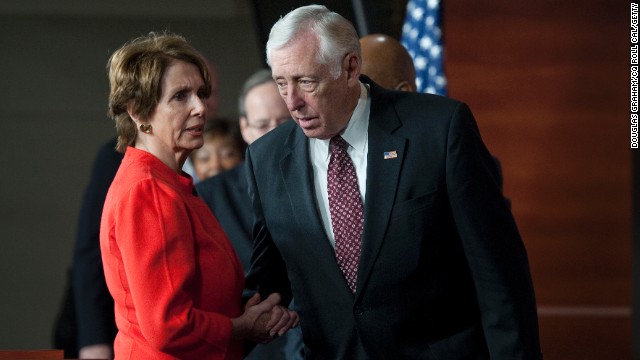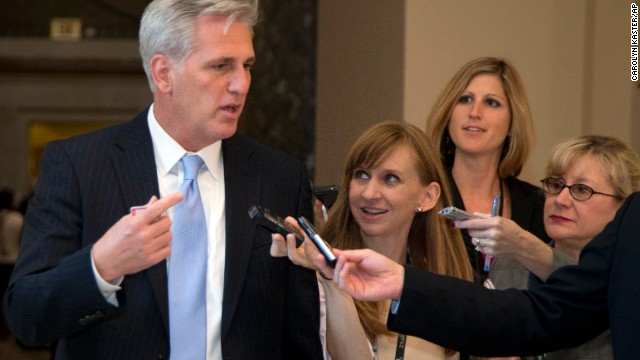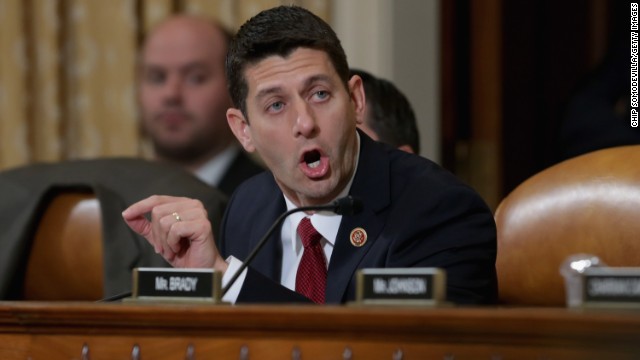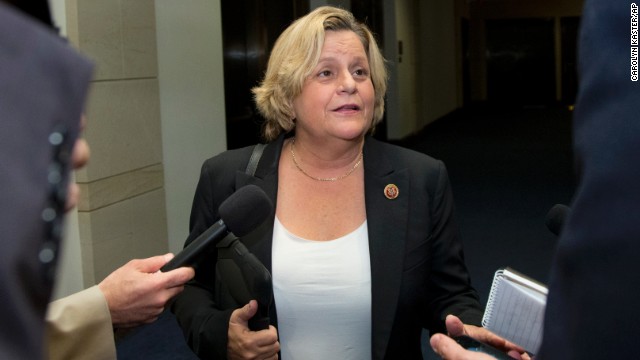- Default? "That's the path we're on," House speaker tells ABC
- Republicans are "playing with fire" on debt limit, Treasury chief tells CNN
- Cruz: GOP should demand big structural cuts before raising borrowing limit
(CNN) -- House Republicans won't support raising the federal government's borrowing limit without new spending cuts from the Obama administration, and the White House risks an unprecedented U.S. default by refusing, House Speaker John Boehner said Sunday.
Speaking six days into a partial government shutdown and 11 days before the Treasury Department expects to hit its statutory debt ceiling,
Boehner told ABC's "This Week" that he wants "a serious conversation" about spending, but no tax increases. Asked if the United States would default on debt payments unless President Barack Obama makes concessions, Boehner said, "That's the path we're on."
"The votes are not in the House to pass a clean debt limit, and the president is risking default by not having a conversation with us," said Boehner, R-Ohio.
But speaking on CNN's State of the Union, Treasury Secretary Jack Lew said Congress is "playing with fire" by threatening to leave the U.S. government unable to pay its creditors --
a risk he called "unthinkable."
"We've never gotten to the point where the United States government has operated without the ability to borrow," Lew said. "It's very dangerous. It's reckless, because the reality is, there are no good choices if we run out of borrowing capacity and we run out of cash."
Lew said the government has been managing to make payments since May by shifting money around, but it will run out of those options on October 17. Unless Congress votes to raise the debt ceiling, the federal government will be left with "a very, very short window of time" before it would have to stop cutting checks for Social Security recipients or disabled veterans and would undermine the full faith and credit of the U.S. government, he said.
What's up with the debt ceiling?
Cruz: Obamacare is hurting millions
The game is the same, but many of the players have changed. Congress and the president are facing off in another supreme spending showdown. If they don't agree on a funding bill by the end of September 30, much of government will shutdown. This last happened in 2011, when Congress avoided a shutdown by passing a spending measure shortly after the midnight deadline hit. Who controls what happens this time? Take a look at the key players who will determine how this fight ends:-- From CNN Capitol Hill Reporter Lisa Desjardins. CNN's Deirdre Walsh and Ted Barrett contributed to this report.
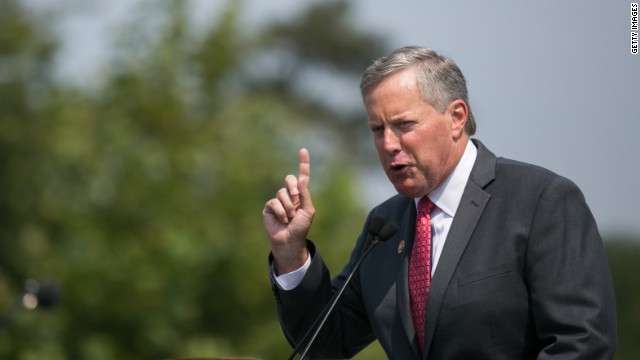
Rep. Mark Meadows, R-North Carolina -- The architect. During Congress' August recess, the tea party-backed freshman wrote to Republican leaders suggesting that they tie dismantling Obamacare to the funding bill. Though initially rejected by GOP leadership, 79 of Meadows' House colleagues signed on to the letter, which quoted James Madison writing in the Federalist Papers, "the power over the purse may, in fact, be regarded as the most complete and effectual weapon ... for obtaining a redress of every grievance."
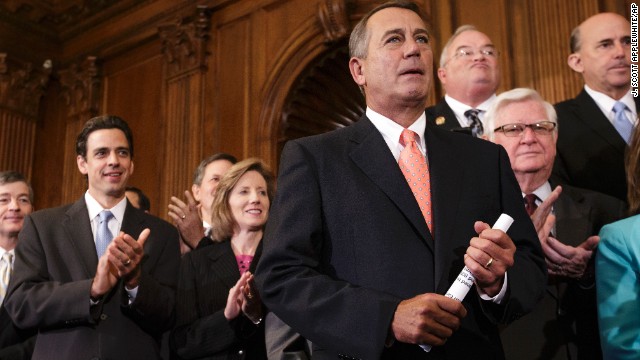
Speaker John Boehner, R-Ohio -- The coach. He'll make the key play call. The top Republican leader in the land may be the most important player in the days immediately before a possible shutdown. Boehner could decide whether to push through the Senate's version of a spending bill and keep government running, or he could float a third version with some other Republican wish list items in it. If he takes the second option, Boehner could risk a shutdown but could also force the Senate into a tough position: give House Republicans something or send federal workers home. Timing on all this will be critical.
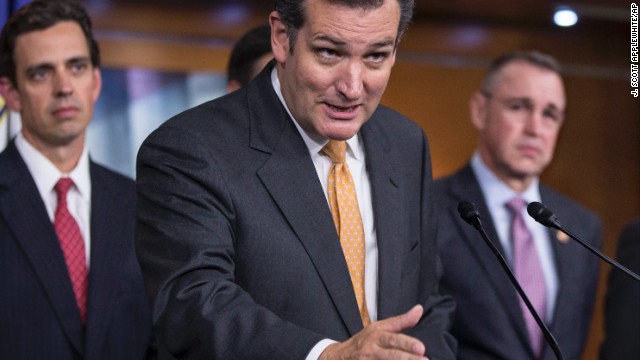
Sen. Ted Cruz, R-Texas -- The revolutionary or rabble rouser, depending on your viewpoint. The tea party firebrand could lead a long filibuster on the Senate floor, delaying passage of a spending bill until just one day before the deadline on Monday, September 30. Cruz has stoked the anti-Obamacare flames all summer, but recently angered fellow Republicans by openly saying that the Senate does not have the votes to repeal the health care law.
Sen. Marco Rubio, R-Florida -- Senator to watch. The potential presidential candidate has been one of three senators (Cruz and Mike Lee, R-Utah, being the others) pushing to use the government shutdown debate as a way to repeal or defund Obamacare. But watch his actions and language as a shutdown nears to see if he digs in or if downshifts at all.
Sen. Harry Reid, D-Nevada -- The man steering the ship in the Senate. Master at using Senate procedure to his advantage, Reid is the main force in controlling the voting process in the chamber and ensuring that an attempted filibuster by tea party-types fails. The majority leader will be a primary negotiator if we reach phase three, if the House does not accept the Senate spending bill.
Sen. Mitch McConnell, R-Kentucky -- If Reid steers the ship, McConnell controls the headwinds. Which is good news for Reid, at least initially. The Republican leader and several of his members say they will vote against Cruz's filibuster and in favor of a spending bill with no limits on Obamacare. Meaning, in favor of a bill that just funds government. McConnell generally has been leery of running into a shutdown or default. In fact, one legislative method for avoiding default is named after him.
Sen. Patty Murray, D-Washington -- The consigliore. Murray, center, does not seek the outside limelight, but the Senate Budget Committee chairwoman is a major fiscal force behind the scenes on Capitol Hill. Known by fellow Democrats as a straight shooter, she is also an experienced negotiator, having co-chaired the laborious, somewhat torturous and unsuccessful Super Committee.
Rep. Tom Graves, R-Georgia -- The new militia leader. The freshman congressman from Georgia, second from right, is one reason the debate has reached this point. Graves led the charge that blocked the original proposal by House Republican leaders. That would have kept government funded and had a detachable portion on Obamacare. Instead Graves and other conservatives forced their leaders to pass a spending bill with a mandatory defunding of Obamacare.
Rep. Peter King, R-New York -- The blunt statesman. King is outspoken against many tea party tactics, calling the move to tie Obamacare to the must-pass spending bill essentially a suicide mission and Cruz "a fraud." He is pushing for Republicans to accept a more "clean" spending bill that can pass the Senate and avoid a shutdown.
Thomas Donohue, president and CEO of the U.S. Chamber of Commerce -- The heavy. Donohue is known for his deep connections and his aggressive lobbying on behalf of business. He and the Chamber are urging Republican lawmakers to avoid a shutdown. The Chamber is an important political backer for conservatives, but has had mixed success with the current Congress, locking in firm anti-tax positions but unable to push through immigration reform so far.
Michael Needham, president of Heritage Action -- The driving force. Needham runs the political offshoot of the conservative Heritage Foundation and has been unrelenting in urging lawmakers to repeal Obamacare. He has told Republicans not to fear a potential shutdown, saying they would suffer more politically from allowing Obamacare to continue.
President Barack Obama -- The campaigner and CEO. Expect the president to use his podium more as a shutdown nears, aiming at public opinion as Democrats in Congress position themselves. If House Republicans send back a new proposal close to the September 30 deadline, the president and Democrats will have to decide what move to make next.
Rep. Eric Cantor, R-Virginia -- The powerful lieutenant. Cantor, the House Republican No. 2, is much more closely allied with conservatives and tea party members in the House than is Speaker Boehner. The two have not always agreed on every strategy during potential shutdown debates, but have been in public lockstep during the current go-around.
Rep. Nancy Pelosi, D-California, and Steny Hoyer, D-Maryland -- Players on deck. The top two House Democrats are mostly watching and waiting. But they will play a critical role once Boehner decides his next move. They could either bring Democratic votes on board a deal or be the loudest voices against a new Republican alternative. Hoyer will be interesting to watch; he has strongly opposed both the House and Senate plans as cutting too much in spending.
Rep. Kevin McCarthy, R-California -- The numbers guy. McCarthy, the House whip, has the tricky job of assessing exactly where Republican members stand and getting the 217 votes it takes to pass a bill in the chamber. He is known for his outreach to and connection with many of the freshmen House members who align with the tea party.
Rep. Paul Ryan, R-Wisconsin -- Member to watch. The vote of the House budget chairman and former vice presidential nominee is an important signal both within Republican ranks and to the public at large. Ryan has voted against some funding measures in the past, including the emergency aid for Superstorm Sandy recovery. But he was a "yes" on the last extension of the debt ceiling.
Rep. Ileana Ros-Lehtinen, R-Florida -- Another member to watch. A former committee chairwoman (Republican rules have term limits for committee chairs), Ros-Lehtinen knows House politics and procedure inside out. Depending on the issue, she has been described as a conservative or moderate, and occasionally as a libertarian.
Key players in the shutdown debate
Key players in the shutdown debate
Key players in the shutdown debate
Key players in the shutdown debate
Key players in the shutdown debate
Key players in the shutdown debate
Key players in the shutdown debate
Key players in the shutdown debate
Key players in the shutdown debate
Key players in the shutdown debate
Key players in the shutdown debate
Key players in the shutdown debate
Key players in the shutdown debate
Key players in the shutdown debate
Key players in the shutdown debate
Key players in the shutdown debate
Key players in the shutdown debate
Key players in the shutdown debate
1
2
3
4
5
6
7
8
9
10
11
12
13
14
15
16
17
18
Photos: Key players in the shutdown debate
In the 2011 debt-ceiling standoff, Congress and the administration agreed to $2 trillion in across-the-board spending cuts over a decade. Though default was narrowly averted, the crisis spurred one of the top three bond-rating houses, Standard and Poor's, to cut the U.S. credit rating for the first time.
Government offices across the country shut down Tuesday after Republicans in the House held up the passage of a temporary spending bill, demanding changes or delays to Obama's signature health care law. More than 800,000 federal workers have been on unpaid leave since then.
A CBS poll released last week shows a 72% majority of Americans disapprove of the government shutdown, with more Americans blaming GOP lawmakers than Obama. But Boehner
told ABC he doesn't have the votes to end the standoff without the Republican conditions on the Affordable Care Act, widely nicknamed "Obamacare."
Complete coverage: Health care in America
"I have 233 Republicans in the House, and you've never seen a more dedicated group of people who are thoroughly concerned about the future of our country," he said. "They believe that Obamacare, all these regulations coming out of the administration, are threatening the future for our kids and our grandkids. It is time for us to stand and fight."
Obama and his Democratic allies in Congress say all Boehner has to do is to bring to the floor a Senate-approved measure that temporarily funds the government, let Democrats and a handful of moderate Republicans vote for it, and the standoff ends. But after similar rounds of brinksmanship over the last increase in the debt ceiling, in 2011, and the expiration of the Bush tax cuts in December, the administration has refused to make new concessions to Republicans.
"In 2011, there was a very dangerous turn in the political debate in Washington," Lew said. "You had the same 50 to 100 members who were really willing to default if they didn't get their way. I've been through a lot of budget debates. I've been through a lot of debt ceiling debates. Never did I hear people who said, 'If it don't get my way, it's better to default.' That's not acceptable now."
House Republicans have responded by passing limited spending bills aimed at restoring funds to popular agencies, such as the Department of Veterans Affairs or the National Institutes of Health. Senate Majority Leader Harry Reid has refused to consider them, demanding that Republicans agree to fund government operations in full -- leading Republicans to blame the president and Reid, D-Nevada, for the shutdown.
Texas Sen. Ted Cruz, a tea party-backed Republican seen as the architect of the new impasse,
told CNN that many previous Congresses have attached conditions to debt-ceiling increases and accused Obama of hyping the risks of a default. He said Republicans should demand "some significant structural plan and reduce government spending" as a condition of raising the borrowing limit, as well as "ways to mitigate the harms from Obamacare."
After soaring to more than $1.4 trillion in 2009, the annual federal budget deficit was expected to shrink below $650 billion in 2013, according to the nonpartisan Congressional Budget Office. But the total federal debt is nearly $17 trillion and is expected to go up by another $6 trillion by 2023, the CBO predicts.
Among the reasons for the shrinking deficits are increased tax collections since January, when Bush-era tax cuts for top earners and a temporary cut in Social Security withholding were allowed to expire. Boehner said that's why he won't accept tax increases in any deal.
"The president got $650 billion of new revenues on January the first ... Now, it's time to talk about the spending problem," he said.
CNN's Dana Davidsen contributed to this report.

